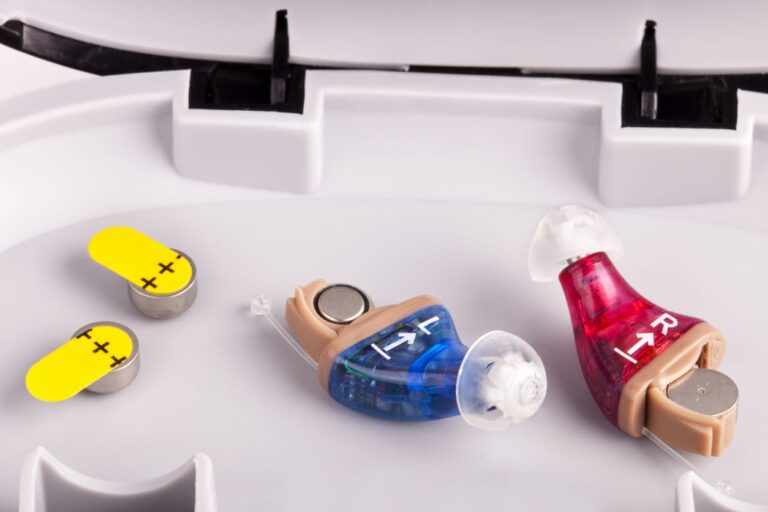Hearing aids come in many shapes and sizes. You can choose from behind-the-ear, visible-in-the-ear or even invisible-in-the-ear options. To help you choose, let’s look at the benefits and challenges of invisible hearing aids and how to know if they’re right for you.
The Perks of Invisible Hearing Solutions

Invisible hearing solutions offer several advantages:
- They provide natural sound quality by reducing background noise and delivering a clearer listening experience
- Their placement allows for easy phone use without interference
- Unlike larger devices, they don’t get in the way of accessories like glasses, hats or earmuffs, making them convenient for everyday wear
- Many wearers also find invisible hearing aids more comfortable. They are custom-fitted to sit comfortably inside your ear canal, reducing the risk of around-the-ear irritation
Many users also appreciate the confidence boost that comes with a discreet hearing solution. While there’s certainly no reason to hide your hearing aids, it’s natural to want a minimal appearance, like preferring small studs over larger dangly earrings.
The Potential Challenges to Consider
While invisible hearing solutions offer numerous benefits, there are some challenges to keep in mind. Due to their small size, they can be tricky to insert and adjust, especially for those with dexterity concerns. If you have trouble handling small objects, they may not be your best option.
Another factor to consider is battery life. Because of their compact design, these devices often have smaller batteries that require more frequent replacement or recharging. If you prefer a long-lasting battery, check with your hearing aid specialist to compare the lifespans of each device.
How Do I Choose the Right Hearing Aids?
Nearly 20% of the global population has hearing loss, and each patient requires a different treatment approach.
Deciding whether invisible hearing solutions are right for you depends on a few factors. They could be a great choice if you prefer a nearly invisible option and have mild to moderate hearing loss. However, they may not be suitable if you have severe to profound hearing loss or difficulty handling small objects.
If you’re unsure which option is best for you, our specialists are here to help. Contact Tinnitus & Hearing Experts today for expert guidance and personalized recommendations.
[related-posts]